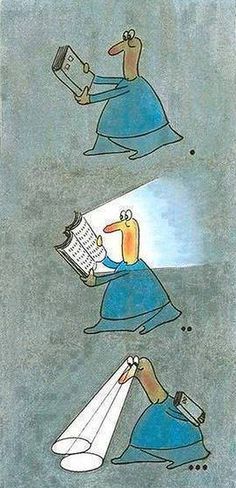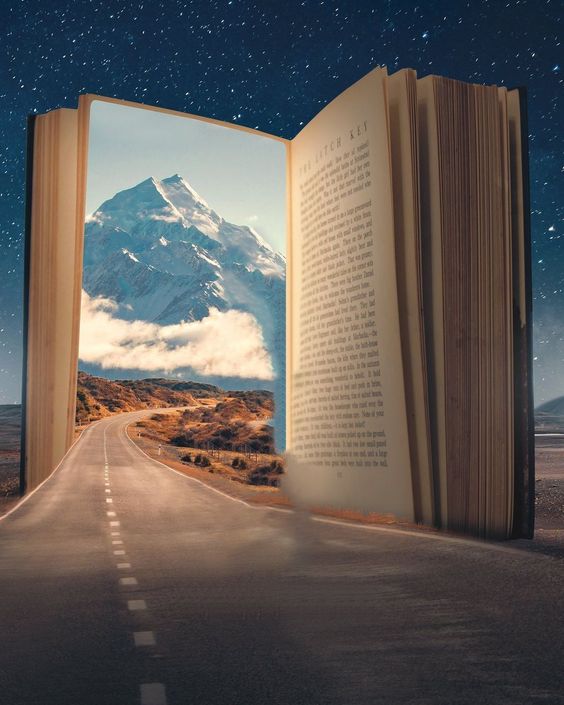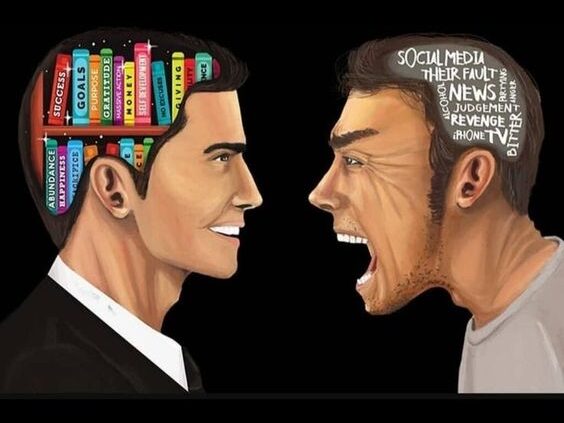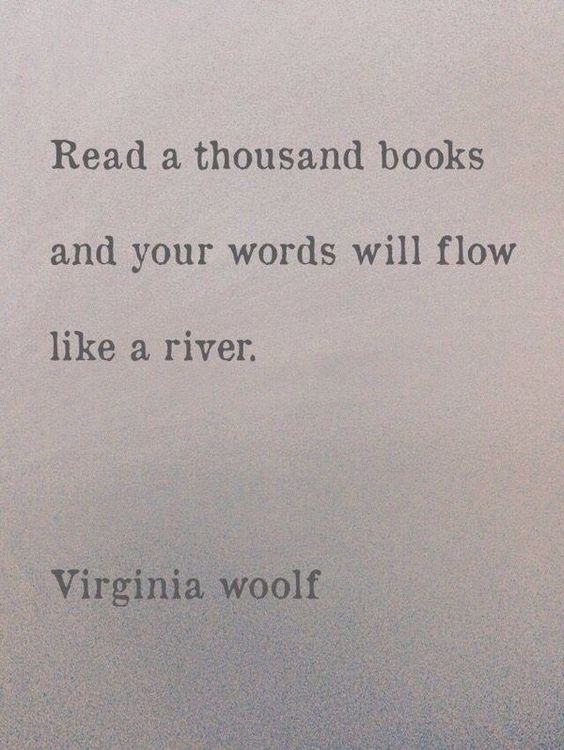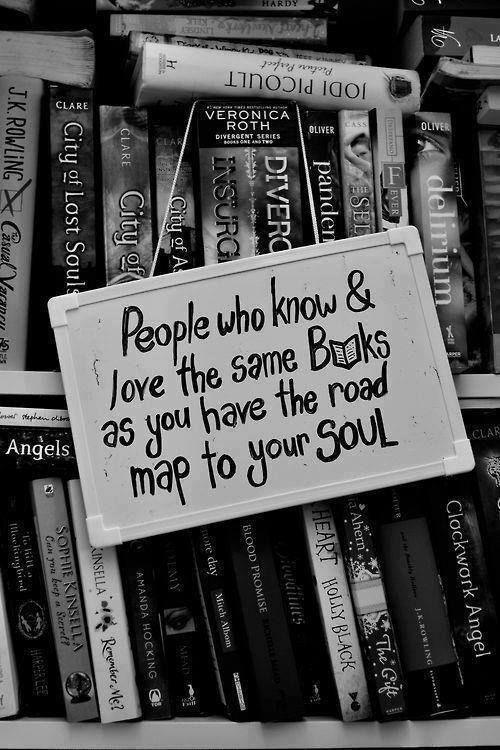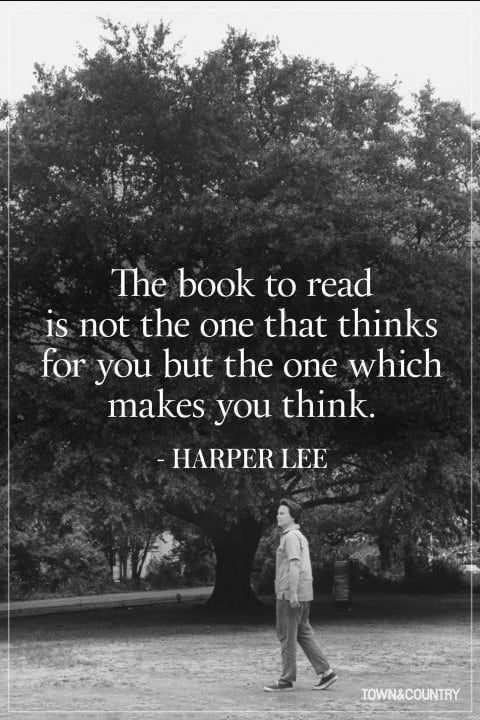Floating, Inverted Bookshelves
Why We ♥ It: …Are you kidding me? How cool to see books hanging upside down on floating shelves…! These innovative and inexpensive shelving units allow you to showcase both above and below presenting you a completely unique opportunity to create personalized, stylish, and eye-catching arrangements. Plus, they’re crafted from natural wood and sturdy metal brackets to ensure durability.
“Books are the carriers of civilization. Without books, history is silent, literature dumb, science crippled, thought and speculation at a standstill. Without books, the development of civilization would have been impossible. They are engines of change (as the poet said), windows on the world and lighthouses erected in the sea of time. They are companions, teachers, magicians, bankers of the treasures of the mind. Books are humanity in print.”
Barbara Tuchman
“Books hold most of the secrets of the world, most of the thoughts that men and women have had. And when you are reading a book, you and the author are alone together—just the two of you. A library is a good place to go when you feel unhappy, for there, in a book, you may find encouragement and comfort. A library is a good place to go when you feel bewildered or undecided, for there, in a book, you may have your question answered. Books are good company, in sad times and happy times, for books are people—people who have managed to stay alive by hiding between the covers of a book.”
EB White, Letters to the Children of Troy
“I consider reading the greatest bargain in the world. A shelf of books is a shelf of many lives and ideas and imaginations which the reader can enjoy whenever he wishes and as often as he wishes. Instead of experiencing just one life, the book-lover can experience hundreds or even thousands of lives. He can live any kind of adventure in the world. Books are his time machine into the past and also into the future. Books are his “transporter” by which he can beam instantly to any part of the universe and explore what he finds there. Books are an instrument by which he can become any person for a while—a man, a woman, a child, a general, a farmer, a detective, a king, a doctor, anyone. Great books are especially valuable because a great book often contains within its covers the wisdom of a man or woman’s whole lifetime. But the true lover of books enjoys all kinds of books, even some nonsense now and then, because enjoying nonsense from others can teach us to also laugh at ourselves. A person who does not learn to laugh at his own problems and weaknesses and foolishness can never be a truly educated or a truly happy person. Also, probably the same thing could be said of a person who does not enjoy learning and growing all his life.”
Gene Roddenberry
“Mike Schur, co-creator of Parks and Recreation, said of his career, ‘This is not stuff you can read in a book,’ he said. ‘This is stuff that you have to experience.’ I think it’s also useful to flip it around. There are things you will have trouble experiencing until you read them in a book. A useful non-fiction book is a map, not the territory. It’s a chance to safely experience what might be, to experience it before it happens. And a book makes it easy to talk about what you’re doing. It gives you the structure and the words to explain to someone else why they might want to come along with you on the journey.”
Seth Godin
“Human beings have been doing the same things for eons. And the wisest minds who ever lived wrote down the best of what they figured out. If you want to stay informed, if you want to learn how to prepare for an uncertain future—forget about breaking news articles, forget about refreshing your twitter feed, forget about the arguing talking heads on CNN. Instead, drink deeply from the great texts of history. Learn from the distant past, from the wisest minds who ever lived. Search very old books to find your best new ideas.”
Ryan Holiday, Daily Stoic Blog
“A library is a good place to soften solitude. A place where you feel part of a conversation that has gone on for hundreds and hundreds of years even when you’re all alone. The library is a whispering post. You don’t need to take a book off the shelf to know there is a voice inside that is waiting to speak to you, and behind that was someone who truly believed that if he or she spoke, someone would listen.”
Susan Orlean
“In the end, without skill or talent, I’ve given myself over entirely to poetry. Po Chü-i labored at it until he nearly burst. Tu Fu starved rather than abandon it. Neither my intelligence nor my writing is comparable to such men. Nevertheless, in the end, we all live in phantom huts.”
Bashō, Narrow Road To The Interior (Page 182)
“Reading is migratory, an act of transport, from one life to another, one mind to another. Just like geographic travel, reading involves estrangement that comes with the process of dislocating from a familiar context. I gather energy from this kind of movement, this estranging and unsettling, and I welcome it precisely because it’s conducive to examination, interrogation, reordering. Travel, imaginative or physical, can sharpen perception and force a measuring of distance and difference.”
Jenny Xie, The Self Is A Fiction
“There are too many mediocre books which exist just to entertain your mind. Therefore, read only those books which are accepted without doubt as good.”
Lucius Annaeus Seneca, via A Calendar of Wisdom (Page 13)
“What can be more precious than to communicate every day with the wisest men of the world?”
Leo Tolstoy, A Calendar of Wisdom (Page 7)
“Storytelling reveals meaning without committing the error of defining it.”
Hannah Arendt, via Sunbeams (Page 144)
“That is what literature offers—a language powerful enough to say how it is. It isn’t a hiding place. It is a finding place.”
Jeanette Winterson, via Between Two Kingdoms (Page 107)
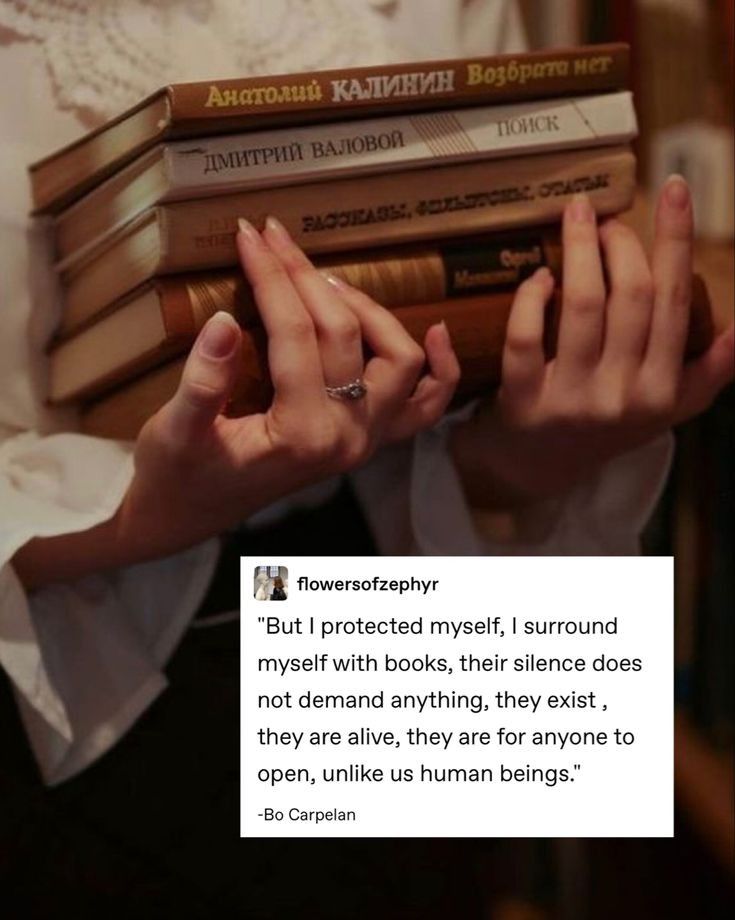
![[MMQ ♥’s] Inverted, Floating Bookshelves [MMQ ♥’s] Inverted, Floating Bookshelves](https://movemequotes.com/wp-content/uploads/2024/11/Inverted-Book-Shelf.jpg)
